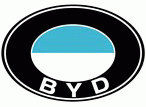|
|
|---|
Tuesday, April 20, 2010
Finally! I know, I really took my time here. On my defense, there were two attempts made to begin Pt. 4... unfortunately both ended abruptly with the computer freezing. Is my computer secretly a gear head? Is it trying to send me a message?
Nevertheless, deep apologies to whoever held their breath in anticipation. You’re probably already dead…
In my last post, readers may recall that I had little praise for the Chinese automakers (links here: pt.3, pt.2, pt.1).
In short, I signed the Chinese automakers off for being overambitious. I think we can all agree that a good way to judge whether a brand new automobile will be successful is by considering whether it has what it takes to be competitive in the segment it is entering in. It does not make any sense at this time for the Chinese to try and emulate German cars. For one reason or another, that is exactly what the Chinese has chosen to believe as the recipe for success. In the international market, however, consumers will not be fooled and no one is cross shopping between a BYD and a BMW. Period.
However, I ended the last post with a hopeful suggestion—“Can there be any emerging automaker that I do appreciate coming from
Oliver Enojado, a friend and an early reader of our blog, messaged me with a very short answer. “No.”
But I have an answer. Ready? Tata! Does it sound familiar? No, it's not to be mistaken with tatas, you’ll have to get your fix of sleaze on some other website!
Tata is an Indian motor company famous for their purchase of the Jaguar and Land Rover brands from Ford. That’s for another time. In this post I want to talk about the Tata
A particular issue Tata addressed, and this deserves a bit of discussion, is the global economy. The Tata
The country of
All in all, the result is incredible! Let’s be realistic people, going fast or being fun to drive is a luxury and there will be none of that in the $2500
Go ahead and call me a hypocrite for criticizing the Chinese for making cheap cars and then choosing the cheapest car of all as the car that I appreciate the most. But the fundamental difference of it all is that the Chinese cars were made in an attempt to fool buyers into believing that their cars are more premium than they really are. Tata created a car that was honest and built with more noble intentions.
Sometimes we get all caught up with numbers. Spec sheets and dynos cannot begin to describe the number of families the
Labels: automakers, China, Choy, emerging, India
Saturday, January 30, 2010
Labels: automakers, China, Choy, emerging
Wednesday, December 16, 2009
Exactly how are Chinese Automakers able to get away with this?
In a nutshell, they aren't.
Despite Warren Buffett's investments, there's yet to be a Chinese Automaker introduced to North America. Naturally, then, I cannot make an assessment based on first hand experience. Thank goodness for Google!
According to Jalopnik.com, who sourced their article from chinacartimes.com, the total number of sales that Chinese Automakers made in Europe for the fiscal year of 2009 is 745. Seven hundred and forty five. Can anyone suggest a word even stronger than "abysmal"?
One car in particular generated a bit of publicity in its stint there. Behold the car in orange, the Great Wall Peri. The car in green is the FIAT Panda. Take a look at everything after the A-pillar, ending at the rear doors.
It's very subtle at first, and arguably I'd say that Great Wall executed a more attractive design than FIAT did. Nevertheless, the cloning is visible. For that reason, FIAT filed a patent dispute over Peri's exterior design, leading to a ban on Peri sales across Europe.
::for more on that ^, click here::
Regardless, despite pathetic sales numbers, and Great Wall being one of the many companies that are facing patent infringement, there are yet to be any signs that Chinese companies have learned to respect other company's development and to establish their individualism, as well as doing what they can for quality, safety and performance.
But this doesn't matter. And I'll tell you why. The growing economy within China is already more than enough to fuel their growth. For many of China's start-up car companies, there's no need to think globally yet. Within the borders, it's what I'd like to call the wild west of business ethics. Anything goes. As long as the products are made by the Chinese, inside the Chinese borders, and generating funds for the Chinese economy, their government will lend a blind eye to unethical business practices. Have a look at the whole tainted milk fiasco, the head of China's State Food and Drug Administration taking bribes from pharmaceutical firms and all.
As a matter of fact, just 3, THREE, out of more than forty five Chinese companies plus however many companies import their cars to China, already make up 48.7% of the entire Chinese domestic market.
It is difficult to fathom exactly how much money that equates to for those three companies, but I suspect that since labor is cheap and it is apparent that their business practice is to cut corners, their margin of profit per vehicle is not small. Each year, their sales will increase exponentially as well. No reason for them to be worried then.
Arguably, though, money should not be the end all of their ambitions. They're a corporation, not a single person, of course. So, I leave you with another question.
What are the future goals of the Chinese automakers?
-Danny Choy-
Labels: automakers, China, emerging
Friday, December 11, 2009
It should not be news to anyone that the fastest emerging economies belong to Asia. As such, I'd like to give you the scoop on the choice of offerings available to you from the fastest emerging automakers.
To warm things up, I introduce to you the Chinese companies, HuaTai and BYD. The following are their logos, respectively.
 Well, on their defense, if one were to mimic the logo of another company in order to ride on their success, they've done a good job. Notice what HuaTai accomplished-- meshing together the logos of Microsoft Windows and BMW.
Well, on their defense, if one were to mimic the logo of another company in order to ride on their success, they've done a good job. Notice what HuaTai accomplished-- meshing together the logos of Microsoft Windows and BMW.
And what about car design? They've done their homework on this one.
Here are the works of another Chinese Automaker::
Behold the Geely Marie, South Korean Chassis with Benz C-class image effects.

Alright, enough with that. Car enthusiasts, you have every right to be worked up. Whether it is in the automotive industry, or any other industry at all, China is known for its unabashed piracy and attempt to milk the success of other companies of all their worth. I've been told that there are even fashion police in Italy, if you will, that will confiscate your bag and everything inside it, if that bag is a faux Louis Vuitton. The damage is great. Everyone in Chinatown carries a Louis Vuitton bag. They're sold in Canal St. here in NYC for $35.
As humorous and ridiculous as the Chinese car companies seem right now, I am certain that both BMW and Benz hold resent towards BYD and Geely as LV does for those that imitate their products. On that note, I will end my entry with something for you to think about.
Exactly how are Chinese Automakers able to get away with this?
Please stay tuned for part 2.
-Danny Choy-
Labels: automakers, China, emerging


 Photo: neharsworld.com
Photo: neharsworld.com
 photo: ashtanganews.com
photo: ashtanganews.com